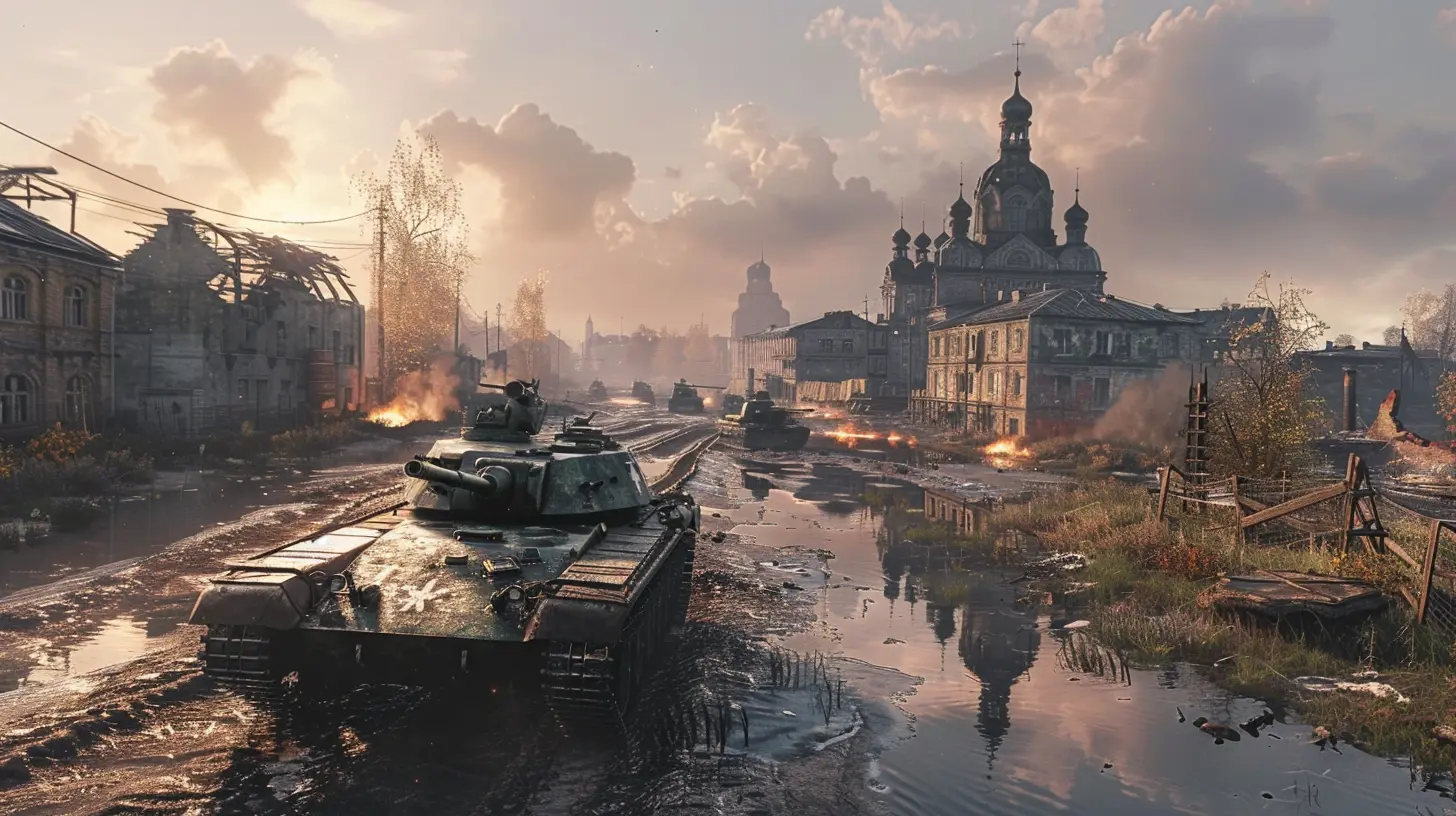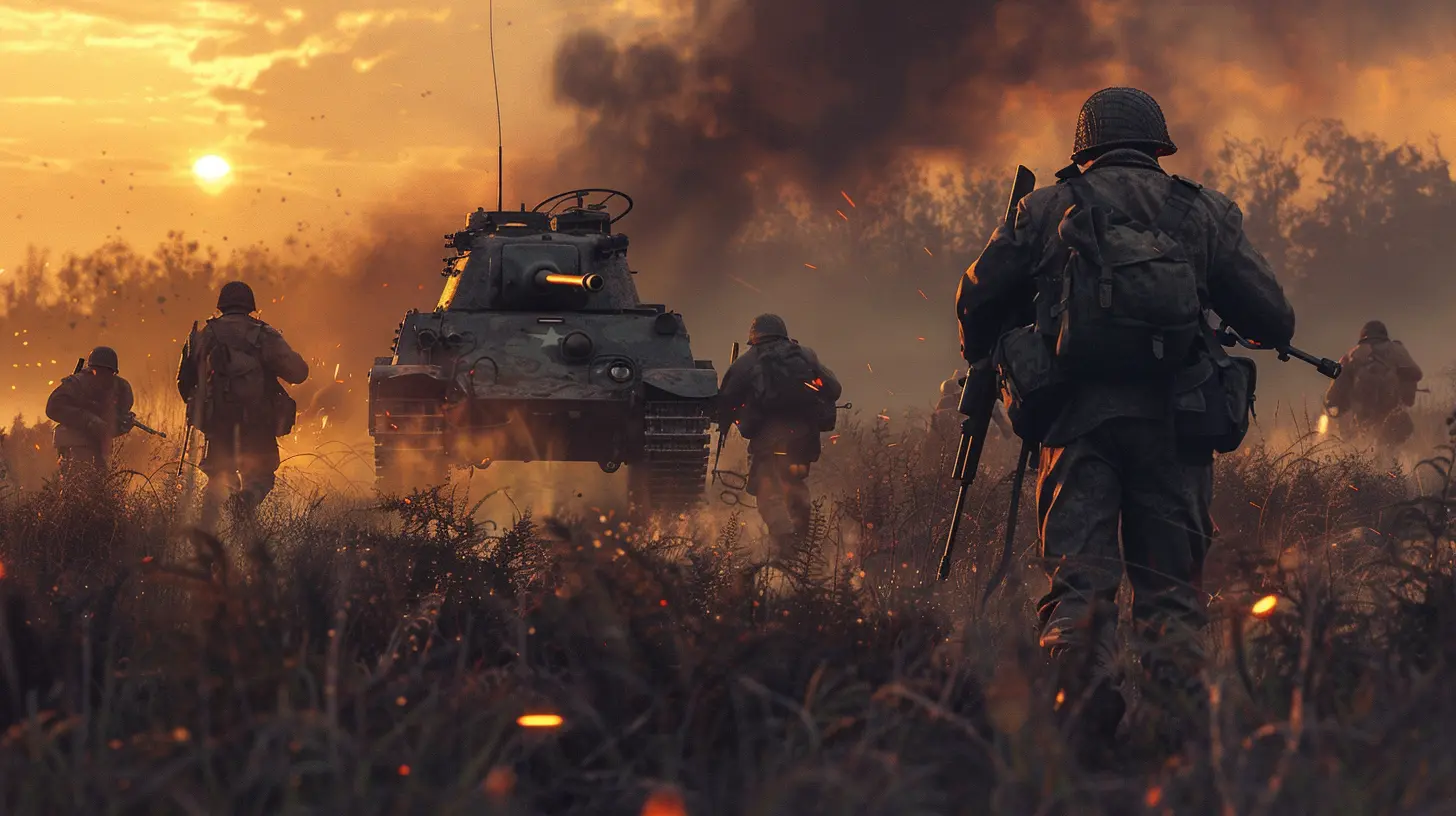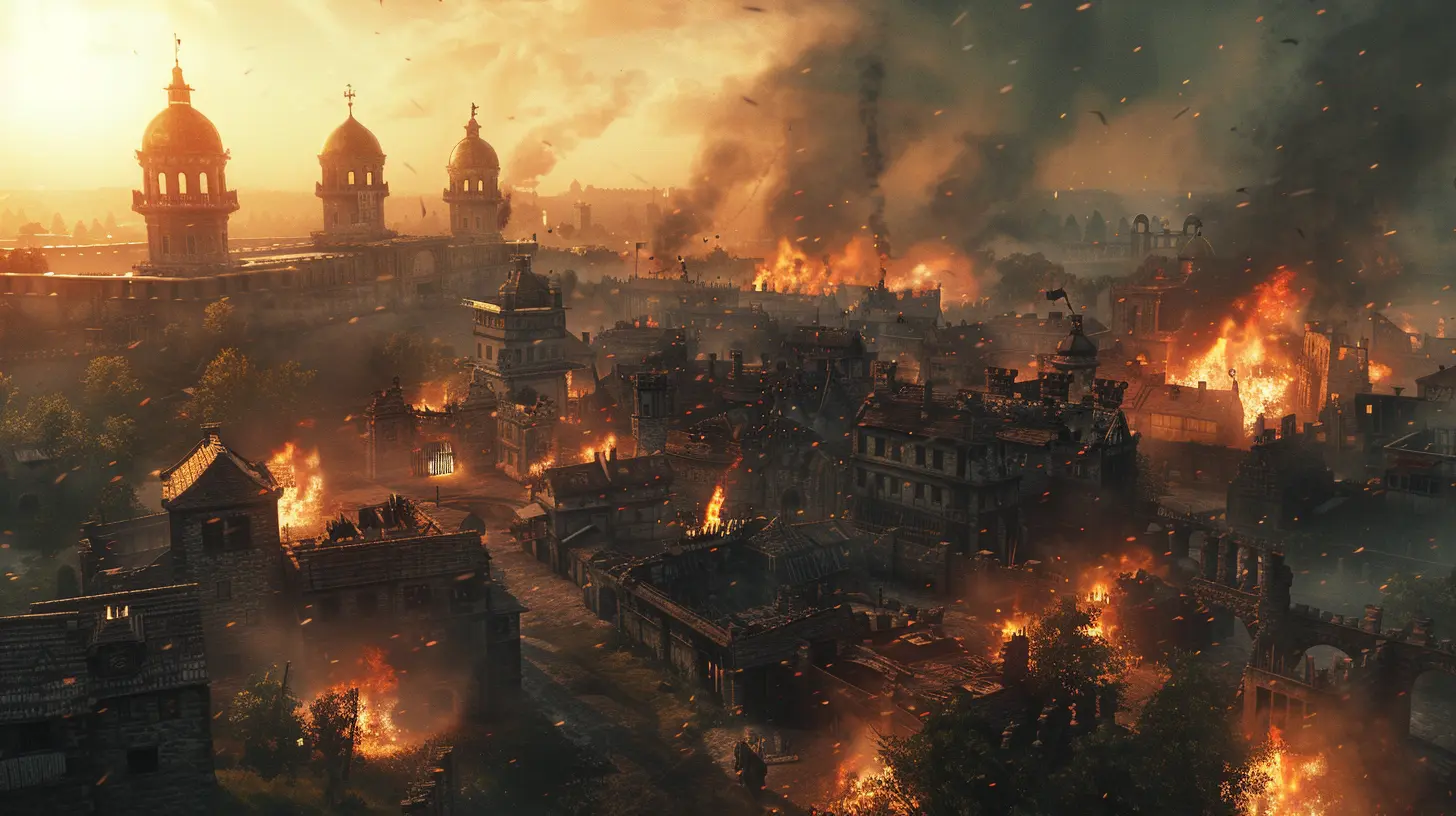Unexpected War Game Mechanics That Surprise Players
31 July 2025
When it comes to war games, most of us think we know what we're getting into. Tanks roll through battlefields, soldiers charge headfirst into enemy lines, and the sound of explosions fills the air. It’s all about strategy, reflexes, and a heavy dose of adrenaline, right? But sometimes, game developers throw a curveball—something so unexpected, it leaves players scratching their heads or grinning from ear to ear. These surprise mechanics often add layers of depth and make war games truly unforgettable. So, grab your controller or keyboard, and let’s dig into some of the most jaw-dropping, head-spinning war game mechanics that have kept players talking long after the credits roll.

The Element of Surprise: Hidden Mechanics in War Games
Video games are like onions. Seriously—bear with me here. On the surface, they’re straightforward. But peel back the layers, and you uncover hidden mechanics. War games, in particular, are great at sneaking in features that players don’t see coming. Let’s dive into some of the most surprising mechanics that have blindsided gamers (in the best way possible).
1. Diplomacy in the Heat of Battle
When you play a war game, you expect carnage—not casual chit-chat. Yet, some games introduce mechanics that let players talk their way out of conflict (or into worse trouble). Take Total War titles, for example. Sure, you can crush your enemies with superior firepower, but sometimes, a well-crafted treaty or alliance does the job better.Players find themselves sitting at virtual negotiation tables, deciding whether to sweet-talk their foes or backstab their allies. It’s Machiavellian politics meets warfare, and it’s as frustrating as it is fun. Who’d have thought that in a game about obliterating your enemies, diplomacy could be your secret weapon?
Why It Works
This mechanic mirrors real-world warfare—where politics and negotiation often carry as much weight as combat. It’s a refreshing shift from the usual “attack, capture, repeat” formula.
2. Emotions as a Weapon: Morale Systems
Let’s be honest—no one expects soldiers to break down mid-battle in a war game. Yet, some titles embrace realism by weaving emotional states into their mechanics. The Company of Heroes series, for example, introduces morale as a key gameplay feature. Soldiers who are overwhelmed by enemy fire might panic, freeze, or retreat.It’s one thing to manage tanks and supplies, but managing feelings? That’s next-level strategic chaos. You suddenly have to think about more than just firepower—now you’re figuring out how to keep your troops calm under pressure.
Why It Works
This mechanic humanizes the battlefield. It forces players to see their troops as more than just pixelated units and instead as people with fears and limits.
3. Unconventional Warfare: Turning the Environment Against You
Let’s talk about nature for a second. Normally, it’s the backdrop—the pretty scenery you’re trying not to blow up. But in some war games, the environment becomes the ultimate adversary. Take Arma 3, for example. This military sim doesn’t just test your combat skills; it forces you to survive in grueling, often unpredictable environments.A sudden storm might throw off your sniper shot. Fog could obscure an entire platoon. And don’t even get me started on night missions—it’s like stumbling through a dark forest wearing sunglasses.
Why It Works
This mechanic keeps players on their toes. You can’t just rely on brute force when the weather itself is sabotaging you. It adds a whole new layer of unpredictability.4. Permadeath: The Ultimate Gut Punch
Picture this: You’ve spent hours building the ultimate squad. You’ve upgraded their skills, given them the best gear, and grown attached to their personalities. Then BAM—they’re gone. Forever. No respawn button. No checkpoints. Just… gone.War games like XCOM 2 are notorious for this mechanic. Permadeath forces players to think carefully about every move because one mistake could cost you a beloved character. It’s brutal, but it’s also brilliant.
Why It Works
This mechanic creates emotional investment. Every decision feels weightier when you know there’s no going back. It’s the gaming equivalent of walking a tightrope without a safety net.5. The Fog of War: What You Don’t Know Can Hurt You
If you’ve played strategy games, you’ve probably encountered the “fog of war.” This mechanic hides parts of the map until your units explore them, mimicking the uncertainty of real combat. But some war games take it a step further.In Battle Brothers, for instance, the fog of war isn’t just visual—it’s psychological. Players don’t always know what kind of enemies they’ll encounter until it’s too late. A routine patrol can suddenly turn into a desperate struggle for survival against an unexpected ambush.
Why It Works
This mechanic capitalizes on the suspense of the unknown. The fear of what might be out there is often more terrifying than the enemy itself.6. Evolving Enemies: AI That Learns From You
Remember how satisfying it feels to find an exploit and absolutely wreck the AI in a game? Yeah, some developers have made sure that doesn’t happen. Enter adaptive AI—a mechanic where enemies get smarter the more you play.Games like Metal Gear Solid V: The Phantom Pain throw this curveball at players. Rely on headshots too much? Enemies start wearing helmets. Use stealth tactics to sneak into bases? They start setting up more surveillance. It’s like playing chess with someone who figures out your every move.
Why It Works
This keeps players from getting too comfortable. You’re constantly pushed to adapt and try new strategies, which keeps the gameplay fresh and challenging.7. Wartime Economy: Fighting With Your Wallet
In most war games, resources like ammo and health packs are just lying around waiting for you to pick them up. But some titles force players to think like supply chain managers. Games like Hearts of Iron IV introduce complex wartime economies where managing resources is as critical as winning battles.Suddenly, you’re not just fighting enemies; you’re also battling inflation, fuel shortages, and supply line disruptions. Who knew running an army meant playing accountant too?
Why It Works
This mechanic highlights the logistical side of war, showing players that it’s not all about firepower. Sometimes, the biggest battle happens behind the scenes.8. Friendly Fire: The Unforgivable Mistake
Friendly fire is one of those mechanics that looks great on paper but feels awful in practice. You know, shooting your own teammates by accident. It’s a common feature in tactical shooters like Squad and Escape from Tarkov.The kicker? Some games don’t just punish you with a guilty conscience—they also penalize you with lost points or broken alliances. One misstep, and you’re suddenly the most hated player in the lobby.
Why It Works
This mechanic forces players to be hyper-aware of their surroundings. It’s a lesson in accountability—especially when the team isn’t afraid to let you have it in the chat.9. Psychological Warfare: Messing With the Player’s Mind
Some war games go meta—messing not just with your character but with you, the player. Take Spec Ops: The Line, for example. What starts as a standard military shooter turns into a psychological thriller that forces you to question your actions.Did you really need to bomb that village? Was there another way? By the end, players are left questioning their morality and the true cost of war.
Why It Works
This mechanic blurs the line between entertainment and introspection. It’s a rare but powerful way to make players feel the emotional weight of their choices.Final Thoughts: Why War Game Mechanics Matter
War games are more than just guns and explosions. The best ones challenge players to think differently—to adapt, strategize, and sometimes even feel. Whether it’s managing morale, navigating unpredictable environments, or outsmarting adaptive AI, these unexpected mechanics remind us why we love gaming: for the surprises, the challenges, and the stories they let us create.So, next time you fire up a war game, keep an eye out. You never know when the game might throw you a curveball—and that’s half the fun, isn’t it?
all images in this post were generated using AI tools
Category:
War GamesAuthor:

Leif Coleman
Discussion
rate this article
2 comments
Martha McClure
Refreshing twists redefine player engagement dynamics.
January 18, 2026 at 5:46 AM
Julia McNair
This article brilliantly highlights the fascinating ways unexpected mechanics can transform gameplay. From stealth mechanics in action titles to strategic diplomacy in shooters, these surprises not only enhance player engagement but also challenge conventional gameplay expectations, making every encounter uniquely memorable and exhilarating.
August 10, 2025 at 4:23 PM

Leif Coleman
Thank you! I'm glad you enjoyed the article and appreciate the insights on how these unexpected mechanics elevate gameplay experiences.


